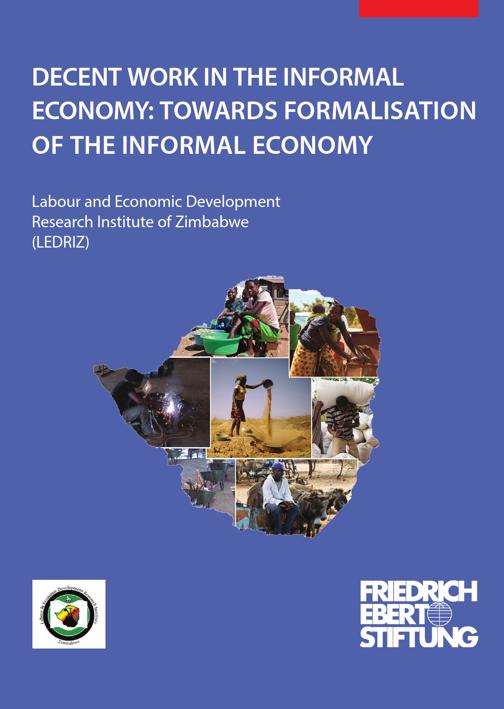Publikationen der StiftungDecent work in the informal economy Titel
Titelaufnahme
- TitelDecent work in the informal economy : towards formalisation of the informal economy
- Verfasser
- Körperschaft
- Erschienen
- Umfang25 Seiten : Diagramme
- SpracheEnglisch
- DokumenttypDruckschrift
- Schlagwörter
- Geografika
- URN
- Das Dokument ist frei verfügbar
- Nachweis
- Archiv
The informal economy in general is marked by acute decent work deficits and a disproportionate share of the working poor. Although some activities offer reasonable livelihoods and incomes, most people engaged in the informal economy are exposed to inadequate and unsafe working conditions. This study shows that illiteracy levels are high, skill levels are low and training opportunities are inadequate. Incomes are also lower, less certain and less regular and working hours are longer. Informal economy workers in Zimbabwe have no opportunities for collective bargaining and representation rights and their employment status is usually ambiguous or disguised. Workers are also physically and financially more vulnerable because work in the informal economy is either excluded from or effectively beyond, the reach of social security schemes and safety and health, maternity and other labour protection legislation. Workers who participate in the informal economy are typically classified as employed. The type of work that makes up the informal economy is diverse, particularly in terms of capital invested, the technology used, and income generated. The spectrum ranges from self-employment or unpaid family labour to street vendors, shoe shiners, and garbage collectors. On the higher end of the spectrum are upper-tier informal activities such as small-scale service or manufacturing businesses, which have a more limited entry. The upper-tier informal activities have higher set-up costs, which might include complicated licensing regulations, and irregular hours of operation. However, most workers in the informal sector, even those that are self-employed or wage workers, do not have access to secure work, benefits, welfare protection, or representation. These features differ from businesses and employees in the formal sector which have regular hours of operation, a regular location and other structured benefits.
